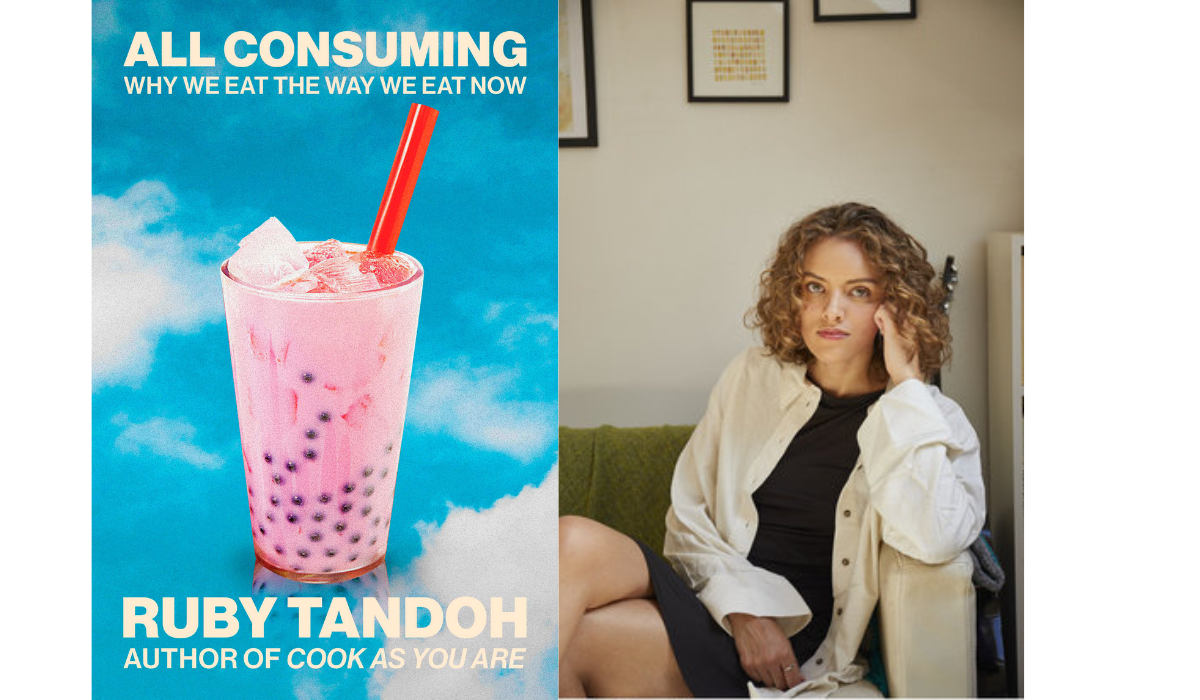Consuming 'All Consuming'
6 reasons to love Ruby Tandoh's new book
More than a decade ago, Ruby Tandoh placed second in an early season of the Great British Bake-Off. Then, she was the youngest contestant to ever appear on the show. Now, she’s written a handful of cookbooks and columns and articles that scrutinize our modern relationship with food.
Tandoh’s latest book, All Consuming: Why we eat the way we eat now, spans over a century of influence in food, cooking, and restaurants. Its essays cover modern eating trends — boba to gut-health tonics, ice cream to robot pizza — and digs up their origins. It tackles restaurant recommendations to TikTok and Instagram as facilitators of culture. The book was released last week in the UK and yesterday in the US.
In the introduction, Tandoh calls the internet “the primary food infrastructure of modern age,” usurping farms and factories and grocery stores. Food stories, Tandoh writes, become tech stories.
Expedite is a newsletter, not a book club. But if we had a book club, All Consuming would be its first selection. It’s a refreshingly realistic take on the forces behind what we want to eat, including the way people find, discover, and experience restaurants now. People who love restaurants should understand how they work.
“You can’t talk about these things without understanding your place in them,” Tandoh writes. And she, a 30something Londoner, offers plenty of informed perspective from living and eating. (When promoting the book, she also promised “countless grievances shared,” which I appreciate especially coming from a woman who once called Great British Bake-Off judge Paul Hollywood “a peacocking manchild.”)
Here are six themes I especially enjoyed:
What makes something “the best”?
“Best restaurants in Soho,” “best chicken recipes,” “best burger in SF” — we all want the absolute best. And in a chapter about recipes on the internet Tandoh considers what makes a recipe the “best.” For now on the internet, Tandoh posits, “best” is simply “the favored few that actually grab your attention.”
It’s an important question, especially now. I’ve asked tech execs as they roll out AI software integrations and personalized recommendations how their tech gets to the so-called best answer. “Best” is subjective. What actually signals what’s best?
The execs I ask usually equate “best” with “relevant” — the most favorably reviewed restaurants, closest to your location, most similar to places you’ve already been and liked. But this technology is still developing in real time, even though we keep asking it what’s best.
Last year, New York critic ryan sutton (who’s name-checked a couple times in the book’s recommended reading section) offered an important warning: Do not ask ChatGPT for restaurant advice. It’s often wrong, misguided, or simply hallucinating. And what it does know, it’s stolen from people who can actually dine at restaurants.
Since Sutton’s warning, ChatGPT has released new models, and it’ll continue iterating fast. As conversational AI improves (and as we improve as conversation-starters with conversational AI), these signals will keep changing, and AI’s advice will keep getting better. But “best”? That’s still subjective.




